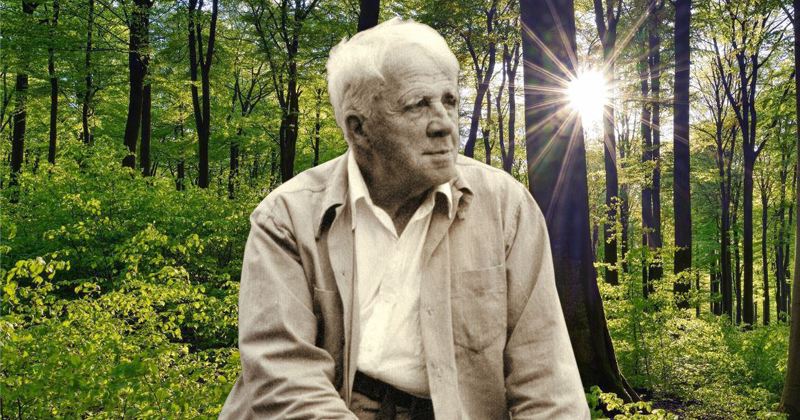I write prose, not poetry, but the most helpful piece of advice I’ve ever read was written by a poet: Robert Frost, who was born 147 years ago today. In the second, expanded edition of his Collected Poems, published in 1939, Frost included an introductory essay called “The Figure a Poem Makes.” The whole (esoteric, conceptual) essay is worth the time it takes to unpick, no matter what kind of writer you are, but there are two bits that have earned their way to a place above my writing desk.
The first one is not really advice (though if you slip a little should in there, you could always use it that way): A poem, he writes, “begins in delight and ends in wisdom.” I remember reading this for the first time, years ago, and being blown away by the simplicity and the obviousness of it—here’s Frost, in the ’30s, summing up exactly what makes me love a piece of literature, contemporary or otherwise. It has been a useful framework for me as a writer, but even more so as a reader. Understanding why you love the things you love is half the battle.
The second line is closer to advice: “No tears in the writer, no tears in the reader. No surprise for the writer, no surprise for the reader.”
Also simple, also obvious—though this one was less obvious to me, a Nabokov acolyte (Nabokov, of course, would never admit to having anything less than complete and exacting control over his novels, or characters, or sentences, or commas) and dedicated lover of “cold” literature. Still, it has never left my brain, and slowly but surely, it has changed the way I write, I think for the better. Plus, I get to be surprised more often. (Sorry, Vlad. You’re still my #1.)
